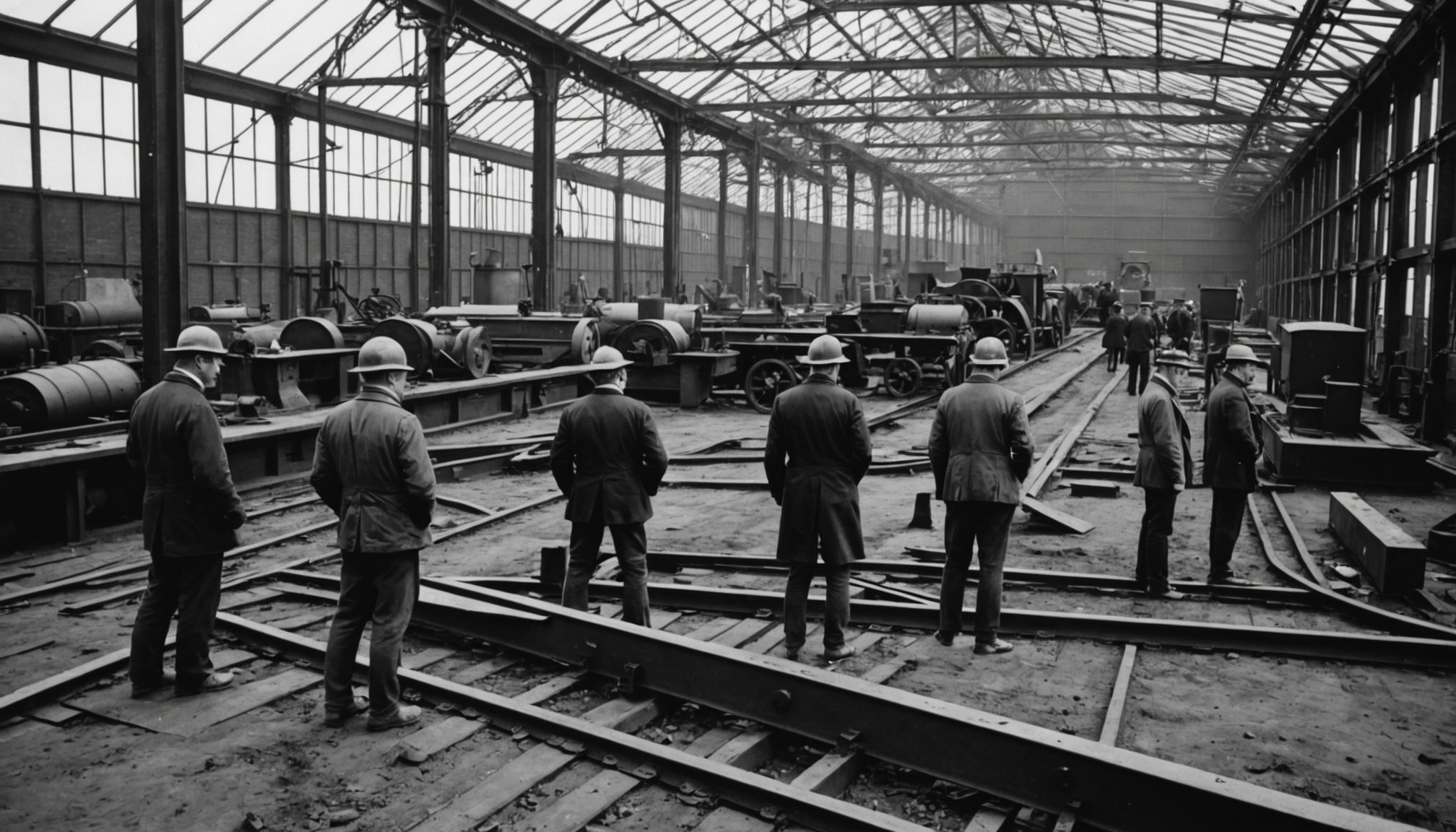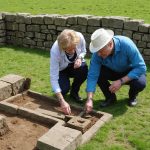Sheffield, known as the Steel City, boasts a rich industrial heritage that shaped not just Britain but the world. Uncover the stories behind its steel legacy and explore the top strategies for connecting with this vital history. From immersive museums to historic sites and local tours, you can gain unique insights into the craftsmanship and innovation that define Sheffield's steel industry. Delve into its past and appreciate the city's pivotal role in engineering and production. Ready to discover? Explore the steel legacy of Sheffield today!
Historical Context of Sheffield's Steel Industry
Sheffield's steel history is a tale of innovation and transformation. The origins of steel manufacturing in Sheffield date back to the 14th century, when the city was already known for its cutlery production. This early reputation set the stage for Sheffield to become a powerhouse during the Industrial Revolution, when advancements in technology and production methods revolutionised the steel industry.
Also read : Unwind in stunning villas south of France: a luxe escape
The Industrial Revolution played a pivotal role in shaping Sheffield's steel industry. The introduction of new technologies, such as the crucible steel process, allowed for the production of high-quality steel. This innovation was spearheaded by key figures like Benjamin Huntsman, whose developments in steelmaking techniques greatly enhanced the strength and durability of steel products. The Bessemer process, introduced by Henry Bessemer, further advanced steel production by making it more efficient and cost-effective.
Sheffield's steel legacy is marked by numerous innovations and influential figures who contributed to its growth. The city's ability to adapt and incorporate new methods ensured its status as a leading steel manufacturing hub. As a result, Sheffield became synonymous with quality steel, earning a global reputation that endures to this day. The historical context of Sheffield's steel industry highlights the city's significant impact on the world of steel manufacturing.
Additional reading : Discover the Ultimate Photography Tour: Capturing the Breathtaking Beauty of the Lake District’s Most Scenic Spots
Significant Heritage Sites and Museums
Sheffield is home to a rich tapestry of heritage sites and museums that celebrate its illustrious steel history. Among the most notable is the Kelham Island Museum, which offers an immersive journey through the city's industrial past. This museum features exhibits showcasing the evolution of steel manufacturing, including the mighty River Don Engine, a testament to Sheffield's engineering prowess.
Another key location is the Sheffield Industrial Museums Trust, which manages several sites, including the Abbeydale Industrial Hamlet. This open-air museum provides a glimpse into the traditional methods of steel production, with restored workshops and machinery that bring the past to life.
Visitors can also explore the Weston Park Museum, where interactive displays and educational programs delve into the cultural and historical significance of Sheffield's steel industry. These museums not only preserve the city's heritage but also offer engaging educational opportunities for all ages.
Prominent cultural landmarks like the Grade II listed Portland Works, one of the earliest examples of a purpose-built cutlery factory, serve as a reminder of Sheffield's pivotal role in the global steel industry. These sites collectively provide a comprehensive understanding of how Sheffield's steel legacy has shaped both the city and the world.
Impact of Steel Industry on Sheffield’s Development
The steel industry has been a cornerstone of Sheffield's economy, profoundly influencing its urban and social landscape. The economic significance of steel manufacturing is evident in the city's growth, providing employment opportunities and fostering a thriving local economy. Sheffield's transformation into a steel hub attracted a diverse workforce, contributing to the city's dynamic social fabric.
The social impact of steel on local communities is substantial. Steel production not only provided jobs but also shaped cultural identities, with many families having generational ties to the industry. This sense of community and shared history is a testament to the enduring legacy of steel in Sheffield.
Urban development in Sheffield was heavily influenced by the steel industry. Neighborhoods such as Attercliffe and Brightside emerged as residential areas for workers, with infrastructure and housing designed to support the burgeoning workforce. These areas offer a glimpse into the city's industrial past, reflecting the close-knit communities that grew around steel production.
The Sheffield economy thrived on steel, driving innovation and development. The city's ability to adapt to changing industrial demands ensured its continued relevance in the global steel market. This adaptability is a key factor in Sheffield's sustained economic and cultural vitality.
Engagement Strategies for Visitors
Exploring Sheffield's steel heritage offers an enriching experience for those interested in industrial history. When visiting Sheffield, consider embarking on steel heritage tours that provide a comprehensive view of the city's storied past. These tours often include guided visits to key sites such as the Kelham Island Museum and the Abbeydale Industrial Hamlet, offering insights into historical steel production techniques.
For an immersive cultural experience, plan your visit around events and programs celebrating Sheffield's steel legacy. The city hosts various festivals and exhibitions throughout the year, highlighting its industrial achievements. Participating in these events can provide a deeper understanding of Sheffield's impact on the steel industry and its cultural significance.
When planning a visit, practical tips can enhance your experience. Start by checking the opening hours and any special exhibits at the museums. Booking tickets in advance is advisable, especially during peak tourist seasons. Additionally, consider exploring nearby cultural landmarks, such as the Grade II listed Portland Works, to gain a broader perspective on Sheffield's industrial contributions.
Incorporating these strategies into your itinerary will ensure a fulfilling exploration of Sheffield's steel heritage, offering both educational and cultural enrichment.
Educational Resources on Sheffield's Steel Heritage
For those learning about the steel industry in Sheffield, a wealth of educational programs and resources is available. These initiatives aim to deepen understanding and appreciation of the city's steel legacy.
Numerous educational programs are offered by local museums and institutions. These programs provide insights into the historical and technological aspects of steel manufacturing. Participants can engage in workshops, lectures, and hands-on activities designed to foster a comprehensive understanding of the steel industry.
Online resources and publications serve as valuable tools for further research. Websites dedicated to Sheffield's industrial history offer access to digital archives, articles, and documentaries. These resources are ideal for those who prefer self-guided learning or who cannot visit in person.
Collaborations with local universities and institutions play a crucial role in educational outreach. Partnerships with entities like the University of Sheffield facilitate research projects and community events that explore the steel industry's impact. These collaborations often result in public lectures, seminars, and exhibitions that highlight ongoing research and discoveries.
For individuals and groups interested in learning about the steel industry, these educational resources provide an enriching and informative experience, ensuring Sheffield's steel heritage is both preserved and celebrated.
The Future of Sheffield’s Steel Legacy
Sheffield's modern steel industry is at the forefront of innovation and sustainability, adapting to current trends that shape the future of manufacturing. As global demand for sustainable practices increases, Sheffield's steel sector is actively incorporating eco-friendly methods, ensuring its relevance in today's environmentally conscious market.
One significant trend is the emphasis on sustainability in steel production. Sheffield's manufacturers are investing in technologies that reduce carbon emissions and energy consumption. This includes the adoption of electric arc furnaces and recycling initiatives, which not only lower environmental impact but also enhance economic efficiency.
Innovations in material science are also pivotal, with advancements in high-strength, lightweight steels that cater to diverse industries, from automotive to construction. These developments position Sheffield as a leader in the future of manufacturing, offering solutions that meet modern demands.
Today, Sheffield continues to play a vital role in the global steel industry, leveraging its rich heritage and expertise. The city's commitment to sustainable innovation ensures its steel legacy remains influential, providing a model for other regions to follow. As Sheffield evolves, it maintains its status as a beacon of excellence in steel production, blending tradition with forward-thinking strategies.











